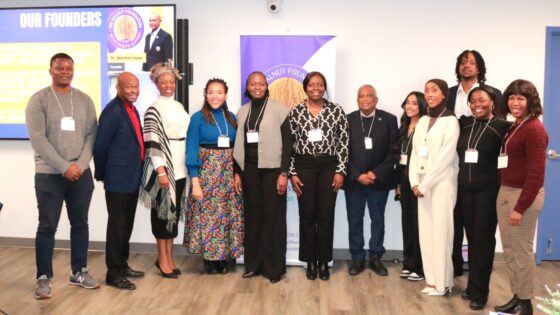on
BY NANA ADJIE-POKU
In March 2020, the Ontario Human Rights Commission (OHRC) released a policy statement on the COVID-19 Pandemic.
Under the Human Rights Act, these rights are defined as codes that prohibit discrimination based on various grounds, namely: race, ethnic origin, ancestry, place of origin, colour, citizenship, creed or religion, sex, sexual orientation, age, marital status, family status, disability and receipt of public assistance.
Over the past few months, the media has shed some insight on issues in relation to human rights violations that are being faced by essential workers in Ontario. Some of these essential workers include temporary foreign (migrant or farm) workers and personal support workers. What has become prevalent is that this group of essential workers are being put in precarious situations that are taking away or minimizing the exercising of their human rights.
Temporary foreign (migrant) workers
In a recent Toronto Star Article, a migrant worker from Jamaica, who was not named and we will call “Michael” for the purposes of this article, advised that he had to sign a “waiver form” releasing the Jamaican Government from any responsibility should he come to Canada for farm work and become sick with Coronavirus. Workers were told there is a great risk they could contract the virus. Michael said that he signed the waiver because he had no choice; it was either stay in Jamaica and continue to be poverty stricken or sign the waiver and be allowed to work in Canada to enable him to send money back home to his family in Jamaica.
He was also advised that he was not informed about his rights during the pandemic. Michael was not aware that it was mandatory for his employer to have all workers quarantined for 14 days before commencing the farm work. Workers were being told that they had to commence work immediately upon arriving to Canada, which was untrue. The Canadian Government provided funding in the amount of $50 million for the employers at a rate of $1,500 per worker to assist with wages the workers would have earned had they not been in quarantine. Some employers have told their workers that they will have to pay the $1,500 back, which is untrue. Another disturbing fact was that some of the homes workers were placed in for their mandatory quarantine had no food, or inadequate space to allow for required physical distancing.
Michael is one of many migrant workers who migrate to Canada annually to work on our farms for six to eight months out of every year. Majority of the migrant workers come from the Caribbean and other countries like Mexico and the Philippines.
Personal support workers (PSWs)
Research by the Canadian Research Network for Care in the Community showed that 46% of the personal support workers back in 2011 were of a visible minority background. This is a figure that has more than likely increased over the past nine years. Right now, Ontario employs 130,000 personal support workers. This is a field that is not regulated and as a result, there are no standardized rules that govern the employment of a worker and rules in relation to various aspects of their job requirements.
It is a known fact that the long-term care homes have been the epicentre of many COVID-19 deaths, and workers have opened our eyes to the realities they face on a daily basis. There are complaints that some workers have no personal protective equipment (PPE) or are simply being told not to wear masks, as they will cause fear amongst their elderly patients/clients.
Many are refusing to work for fear of contracting the virus and spreading it throughout the community and at home within their families. Some have either been told they will be dismissed or that their refusal to attend work amounts to resignation. Some workers who fell sick and were taking precautions by remaining home, were told they required doctor’s notes, which is not a requirement pursuant to the Premier of Ontario, Doug Ford’s announcement back in March 2020. Again, like the migrant workers, some of these workers are basically being told by their employers to risk their health and their families’ lives and come to work without the proper safety equipment or face repercussions including, but not limited to termination. Many of these workers are also coming from single-parent homes and are the only breadwinners in their family, so they basically have no choice and no rights when it comes to their lives and employment.
I have only shed light on a fraction of the human rights violations many of these essential workers are facing. There are also related components regarding Employment Standards Act violations as well. These workers contribute to our Canadian economy in such a big way.
It is not right that essential workers who have the same rights as others, have those same rights minimized or ignored. Why do we have laws if they only apply to some of us Canadians, Permanent Residents and Temporary Residents? In a time like this where people are getting sick and dying left, right and centre, why are some essential workers being discriminated and being forced to choose between their safety, family, health and economic livelihood.
In a way, it is good that we now have clearer insight as to what is going on and can hopefully ensure that these workers are protected and allowed to exercise their rights whenever they are being discriminated without fear. It definitely will not happen overnight, but one must start somewhere.
Stay in the loop with exclusive news, stories, and insights—delivered straight to your inbox. No fluff, just real content that matters. Sign up today!













